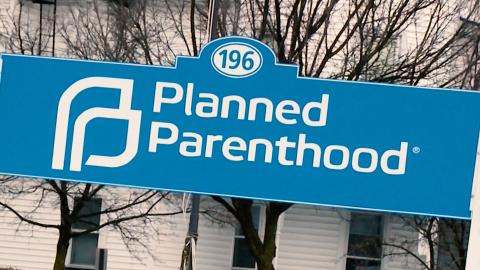Progressive Cities Trapped in an 'Urban Doom Loop' of Stunning Consequences
Last year, for the first time ever, the city of San Francisco spent $6 million on a national tourism campaign, hoping to change the perception that one of the world’s most beautiful destinations has turned into an urban nightmare.
How bad is it? So-called ‘poop maps’ and ‘poop apps’ have been created over the years to help residents avoid the excrement on sidewalks and streets, and there’s a lot of it.
Unfortunately, San Francisco is only one of many U.S. cities facing what economists call the “Urban Doom Loop.” As businesses and the wealthy flee urban areas, the loss of tax money means a lower quality of life, causing a death spiral as more people and businesses leave.
It’s also known as “Detroitfication.” Once America’s fourth largest city with almost 2 million people in the 1950s, crime and lawlessness caused residents and businesses in the Motor City to flee, and today the word “Detroit” is synonymous with urban decay and crime.
"Detroit’s story is, through a lot of self-inflicted harms, it drove a lot of people away,” recounts James Hohman at Michigan’s Mackinac Institute for Public Policy. “They couldn't make the numbers meet. And the answer was always to raise some more revenue from somewhere. So Detroit now has the highest property tax rates in the country.”
While still having one of the highest murder rates and worst city services of any major city in the country.
The specter of Detroit’s decline now haunts a number of major cities. From Baltimore to Philadelphia to Portland to Los Angeles, the squalor and urban decay look the same.
“What we see in places like San Francisco and Chicago and Philadelphia is that businesses flee. Those revenues from property taxes and taxes on businesses are no longer flowing into the city coffers. Services decline and it accelerates that exodus. So, it's a negative feedback loop by which populations and businesses are leaving,” said Jordan McGillis, Paulson Policy Analyst at the Manhattan Institute.
**Please sign up for CBN Newsletters and download the CBN News app to ensure you keep receiving the latest news.**
It’s a bad situation made worse by progressive policy decisions, such as defunding the police.
“You add to that eliminating enforcement of drug laws, of allowing public camping,” McGillis said.
And with more and more people working remotely amid an economic downturn, commercial real estate vacancies are growing. In San Francisco, almost one-third of office space sits empty, and the city’s marquee mall, Westfield Mall, simply stopped paying its mortgage and closed its doors.
Hohman says the lesson cities should be learning is that people want safe, clean places to live, and not cities beholden to the latest progressive policies.
“Our Democratic city governments really need to respond to residents’ needs and make sure that city government is run on their behalf and not on behalf of some strange ideology that only a portion of their population holds,” Hohman said.
The question now is whether cities caught in the "urban doom loop" can somehow escape it.
ANALYSIS from 2018 Progressive Poop Patrol: Why Liberal San Francisco Is Facing an Excremental Crisis




